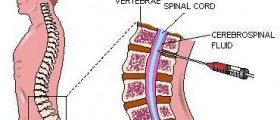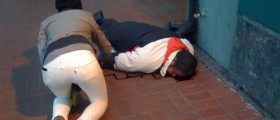
Seasickness is such an unpleasant experience that many people who love traveling and actually travel a lot choose not to go on cruises or other traveling experiences that involve ships and boats.
What is seasickness?
Seasickness is a form of motion sickness. It is caused by misinterpreted signals from the inner ear and the brain. The eyes see walls, floors, rooms of the ship and the brain automatically perceives them as stable, basing on its previous experience. However, the balancing portion of the brain perceives motion of the ship, and the two signals make the brain confused.
Seasickness usually only lasts a few days, until the brain becomes adapted to the new environment. Just like motion sickness, seasickness can affect anyone. In fact, ninety percent of all people are bound to feel a little queasy at least once on a ship or during a long car ride. For some people, this is only an occasional and short-lasting occurrence but less fortunate ones suffer from days until the whole trip is ruined.
Symptoms of seasickness
The main symptom of seasickness is nausea, with or without vomiting. A person suffering from seasickness may also feel weak, worn out and sleepy. There are medications, such as Dramamine, that can be very helpful against seasickness but there are also tips and tricks that may prevent it as well.
Prevention of seasickness
Even people who tend to suffer from motion sickness or sea sickness can follow a few advices as to how this unpleasant experience can be avoided. For example, it helps to gaze but not to fix the eyes on the horizon. Looking through a window can also help. It is not recommended to look or stare into objects that are stable, such as floors, walls, furniture and such. The same goes for reading, writing or doing needlework.
It also helps to keep busy, to walk around, drink plenty of water and take deep breaths of fresh air on the deck. Facing forward and not at the side of the ship is also recommended.
What to eat during travel
During bouts of seasickness it may seem impossible to eat or to keep anything down, but that does not mean a person should be starving. Eating some bland foods, such as dry toast, plain rice and bananas, will soothe the stomach, especially after vomiting. Ginger tea is highly recommended and some people find that carbonated water and soda pops also help.
Persons who have already experienced seasickness on previous travels should choose larges ships that do not rock as much as smaller ones and go on trips in calm waters, such as the Caribbean (except for the hurricane season) or river cruises.








_f_280x120.jpg)








Your thoughts on this
Loading...